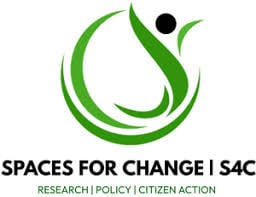Banks, regulators and civil society groups have begun talks on easing tough financial rules that have long hindered the operations of non-profit organisations in Nigeria.
The discussions took place during a high-level training organised by Spaces for Change and the Compliance Institute Nigeria in Lagos recently, aimed at improving how banks apply anti-money laundering and counter-terrorism financing rules to NPOs.
The two-day training, titled “Improving Financial Institutions’ Implementation of FATF Recommendation 8 Applicable to Non-Profit Entities”, brought together senior executives from banks, fintechs, microfinance banks, non-interest banks and capital market operators, as well as regulators and policy experts.
For years, many NPOs in Nigeria have struggled with banking restrictions due to being labelled ‘high-risk’ under global anti-money laundering and countering the financing of terrorism rules. These restrictions, ranging from blocked accounts to delayed transfers, have limited the ability of humanitarian organisations to access funds and deliver aid, particularly in conflict-affected regions.
S4C’s Executive Director, Victoria Ibezim-Ohaeri, said the dialogue was necessary to change how banks perceive and treat the non-profit sector.
“Nigeria has just been removed from the Financial Action Task Force grey list, showing progress in our anti-money laundering systems,” she said.
“What we now need is for NPOs to operate confidently within the formal financial system, using regulated payment channels without being unfairly treated as security risks.”
The FATF’s Recommendation 8 guides countries to apply a risk-based approach to NPOs, ensuring that compliance measures do not unfairly disrupt legitimate operations. However, experts at the forum said most Nigerian banks still use a one-size-fits-all model that groups all NPOs as high-risk, a practice that contradicts international standards.
Participants agreed that reforming internal bank policies and introducing sector-specific due diligence tools could help rebuild trust between NPOs and financial institutions. S4C shared checklists and toolkits designed to help banks assess NPOs based on actual risk levels rather than generalised assumptions.
The Registrar and Chief Executive Officer of the Compliance Institute, Bawo Egbakhumeh, said the event marked a crucial step towards aligning Nigeria’s financial integrity goals with its development priorities.
“The strength of any nation’s financial integrity is measured not only by how well it prevents abuse of the system but by how fairly it supports those doing good within it,” he said. “This is about moving from tick-box compliance to risk-informed empathy.”
The training ended with commitments from several financial institutions to review their internal compliance procedures and strengthen engagement with NPO customers.
Supported by the Global Centre on Cooperative Security and the Charles Stewart Mott Foundation, the event forms part of a wider S4C initiative to strengthen the enabling environment for civil society in Nigeria and across West Africa.















